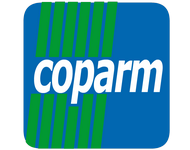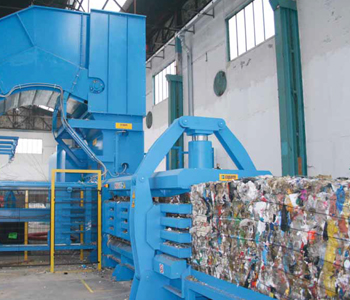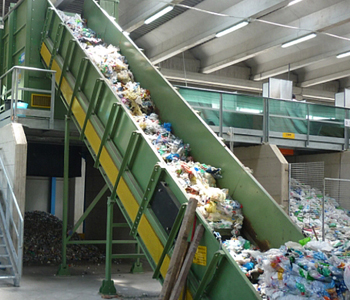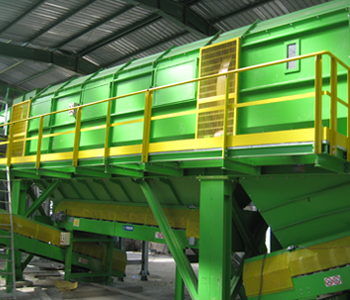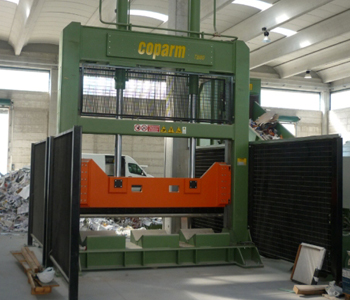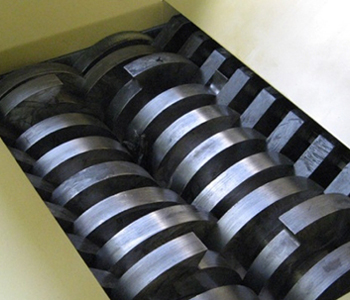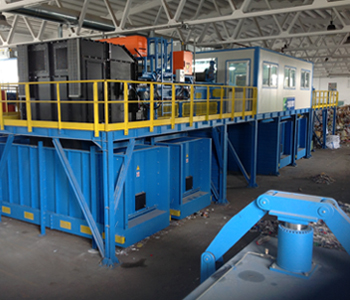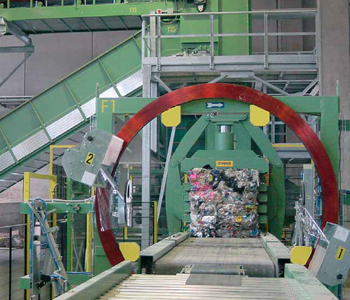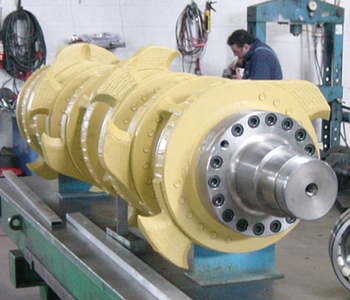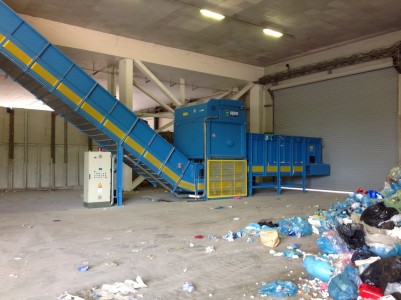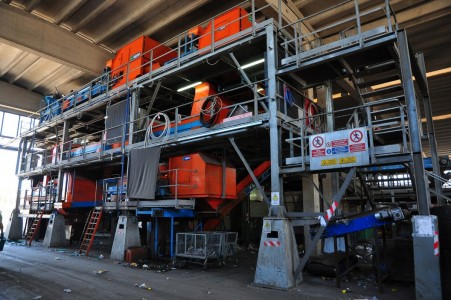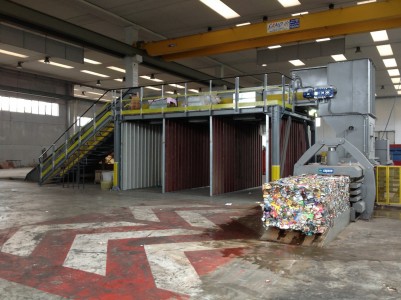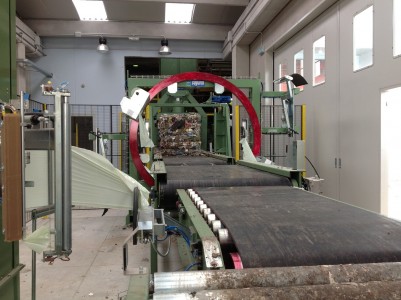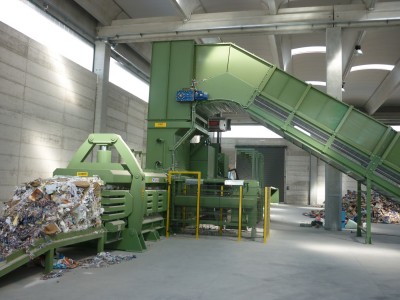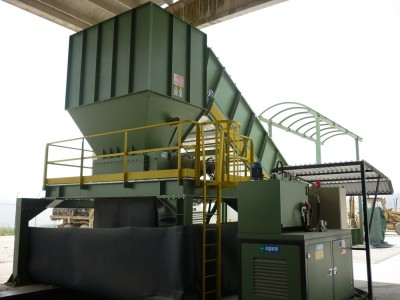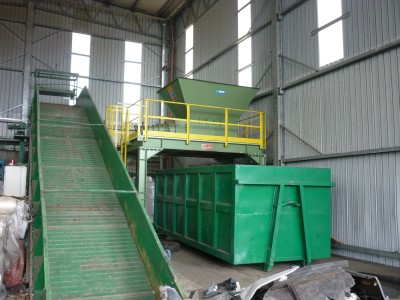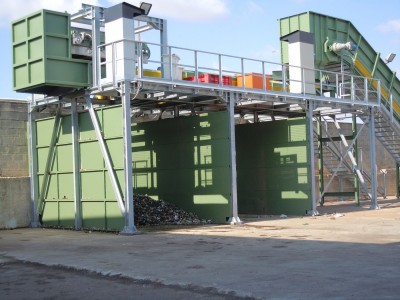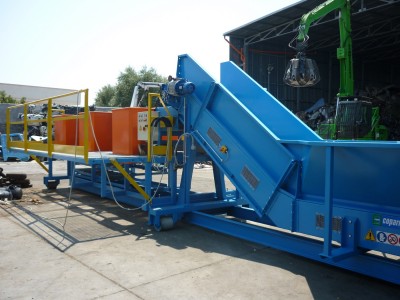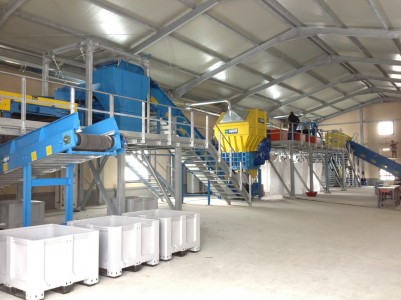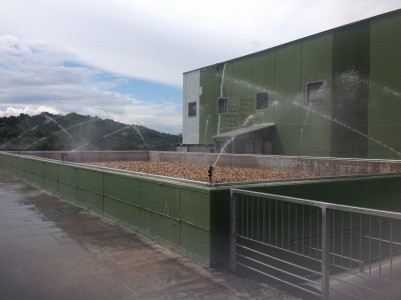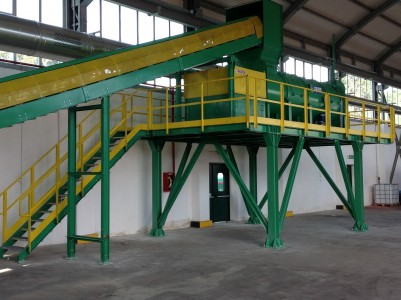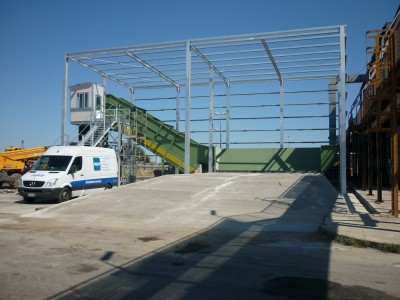waste sorting plants
Coparm designs manufactures and installs waste sorting plants and specific treatments, transport and sorting plants for recyclable materials such as paper, waste collection, multi-material, and industrial waste similar. The success of the treatment of waste fractions is mainly linked to the selection that is made to the origin, greatly improving the recovery rate.
Coparm offers solutions starting from basic systems for manual or mechanical and more complex plants involving specific machinery and equipment more and more ‘sophisticated to get results in full compliance with current regulations regarding waste disposal.
Coparm deliver all sorting and recycling plants turn-key and fully functioning. We always endeavour to develop versatile units in which each individual task can be carried out more efficiently One of the most important functions within sorting plants is the smooth running of material. Sound conveying technology with conveyor belts of all types ensure perfect, reliablelogistics for the various materials in our sorting plants.
Waste sorting
It is a little known fact that many of the materials we consider as waste can actually be recovered and used either for recycling or energy recovery. In an age of environmental consciousness and the need to protect our planet, we would argue that both of the above alternatives are much preferable to the somewhat ‘easier’ solutions of landfilling or burning.
At Coparm, we fully recognize that to recover these materials, waste management operators need to find economic and reliable solutions. This is why we are the preferred partner of many customers across the globe. By using Coparm you will find that we will recover many types of valuable materials from the waste stream and sort them efficiently according to the specific needs of our customers. Whether you’re looking to recycle materials or recover energy, our extensive range of technologies and specialists will provide solutions to meet your needs.
Packaging sorting
Packaging waste is mostly made up of different polymers, beverage cartons, paper and glass. Depending on the country in question, different collection systems apply and the material will invariably arrive in different conditions to the MRF’s (Materials Recovery Facility). However, this does not present us with a problem. At Coparm, regardless of the collection system operated, we are able to optimally sort the valuable fractions with high efficiency and purity. We currently operate sorting units at packaging MRF’s in many countries including Belgium, Canada, Germany, Italy, The Netherlands, Spain, UK and USA.
Amongst the typical sorting tasks that are performed by Coparm in such plants are the sorting of polymers according to their material type (PET, HDPE, PP, PS, mixed polymers, etc), beverage cartons and paper (de-inking and cardboard fractions).
Paper sorting
The recovery of valuable paper fractions from a paper waste stream has been a common practice for many years. For example, printed paper such as newspapers and magazines can be used for de-inking purposes and cardboard can be recycled.
In order to sort the different paper grades with greater efficiency, Coparm has innovated and further enhanced a unique solution that is based on optical technology, rather than the more traditional mechanical equipment.
Consequently, Coparm is now successfully sorting paper in more than 30 MRF’s worldwide. These are situated either in dedicated paper sorting plants or in plants that in process general dry recyclables.
Commercial and industrial waste sorting
Commercial and Industrial Waste is mostly made up of timber, paper(grades), plastic fractions, plastic films and RDF. This waste is produced by businesses, industry, retail and offices.
Mixed municipal solid waste sorting
Automatic recovery of recyclable fractions such as plastics, mixed paper and cardboards out of mixed municipal solid waste (MSW).
Construction and demolition waste sorting
Thousands of tonnes of recyclable materials from construction and demolition (C&D) activites are sent to landfill every day. The new EU directive 2008/98/EC requires that by 2020, 70%of these waste streams should be recovered; but current treatment facilities provide only limited scope to sort C&D into recyclable fractions.
C&D waste represents the largest source of waste in Europe and comprises of a complex mix of materials. With modern processing and sorting technology, the recycling rate can be increased significantly and marketable fractions can be generated. Thus it represents an alternative to landfill as where costs constantly increasing.
Refuse derived fuel
One way in which values within waste can be utilized is by using it as fuel. RDF (Refuse Derived Fuel) is a term that applies to materials with a high calorific value (typically around 18 Megajoule per kilogramm) that are removed from waste streams. Beneficiaries of this material cement kilns to power plants.
Coparm technology has long been utilised in many plants across Europe to produce an RDF material from different waste streams according to the specific needs of the end users. The main purpose of this area of work is to ensure that the RDF has very low chlorine content, typically below 0.7% in weight. Coparm is able to achieve this by either selecting the ‘good’ material (‘positive sorting’) or by ejecting the ‘bad’ material from the stream, such as small PVC parts (‘negative sorting’).
Bulky waste sorting
Coparm can help you sort the value out of Bulky waste.
Bulky waste can contain a high number of valuable materials but this is not easily accessible within regular waste streams due to its bulkiness. This therefore means that in order to streamline the separation process, the initial treatment step has to involve shredding the input material. In order to prepare sortable fractions, sizing of fractions by screening and the separation of light by heavy compartments is inevitable.
Coparm autosort is then able to extract a valuable wood fraction (i.e. to be utilized within the chipboard industry or as biomass), paper and film fractions
Pre-sorted material sorting
The input material of pre-sorted plastics will usually contain materials such as bottles and foil. Before recycling, any impurities need to be cleaned out in order to sort out any residue of organic matter, metals, PVC or coloured PET. The material is checked for colour and material.
In the bottle-to-bottle procedures highest and consistent quality standards are required.
Applications and machines:
Recycling Sorting Systems
Recycling Sorting Equipment
Disc Screens
Trommel Screens
Plastic Recycling Equipment
Cardboard Recycling Equipment
Paper Recycling Equipment
Aluminum Recycling Equipment
Steel Recycling Equipment
Glass Recycling Equipment
Recycling Conveyor
Metering Equipment
Bag Opener
Waste Recycling Equipment
Optical Sorting Equipment
Baling Equipment
Aluminum Can Recycling Machines
Waste Plants
Refrigerators plant
Weee plant
Tyres plants
Special Plants
Electrical wire shredding plant
Installation for washing machine recycling
Installation for plastic recycling
Installation for aluminum profiles recycling
Installation for toner recycling
Installation for glass recycling
Installation for Urban solid waste recycling
Installation for the treatment of Industrial waste
Installation for the treatment of aluminum shavings
Sorting plant for light packagings
Film, plastic bottles, packagings etc. are to be found in our consuming and economic goods every day . A very important precondition for the further treatment of these synthetics towards raw material and recources processing for the production of recyclables and secondary raw materials is the unmix as well as the cleanness of these plastics.
Industrial waste sorting plant
Industrial waste usually contains a very high
proportion of recyclable materials such as PE,
PP, PET, wood, paper, films, NE and FE, which are separated by mechanical sorting. Polymers, paper or films are subsequently inspected at manual sorting stations for quality optimisation. It is therefore possible to easily market the individual fractions. From the remaining residue, refuse-drives fuels are poitively extracted from the material flow via near infra-red technology to bie marketed separately
RDF Plants – refuse derived fuels
Industrial and bulky waste contain a lot of recyclable materials with a high calorific value like for example cardboard, paper, wood, plastics, minerals etc. All these potential recyclables are taken from the material stream by automatical sorting systems and supplied as refuse derived fuels to coal-burning power plans and/or to the cement industry.
Domestic waste sorting plants
Up to 50 % of the domestic waste in big cities end up in the wrong dustbins. There you can find residues with the pre-sorted light packagings and contrariwise a lot of plastics are found in the household waste. Our contemporary sorting technology achieves very good sorting results to fractionate domestic waste into different potential recyclables. Here the question comes up whether it is still necessary to collect waste separately.
Paper and cardboard separation plants
The Coparm ballistic separator especially developed for the paper and cardboard separation has become an important innovation within this field. Due to it’s versatility the aggregate is to be optimally adaptable to the input material. The output qualities are excellent. The mechanical presorting of paper, paperboard and cardboard leads to significant facilitation of work for the sorting personel and huge throughput quantities.
The continuous charge of the ballistic separator by a special feed-dosing unit with stockage, guarantees a smooth operation and optimises the material flow and loading activities.
Sorting plant for co-mingled material Marker
At the heart of the plant are Coparm’s patented stacked ballistic separators. This initial classification of the material into flats and rolling simplifies the sorting process and reduces manual picking.
Our MRFs are individually designed, and will typically include:
MarkerBag Opener
MarkerTrommel
MarkerBallistic Separators
MarkerMagnets
MarkerEddy Current separators
MarkerNear Infra red sorting (NIR) for plastics
MarkerPicking lines
MarkerSorting cabin
MarkerBaler
